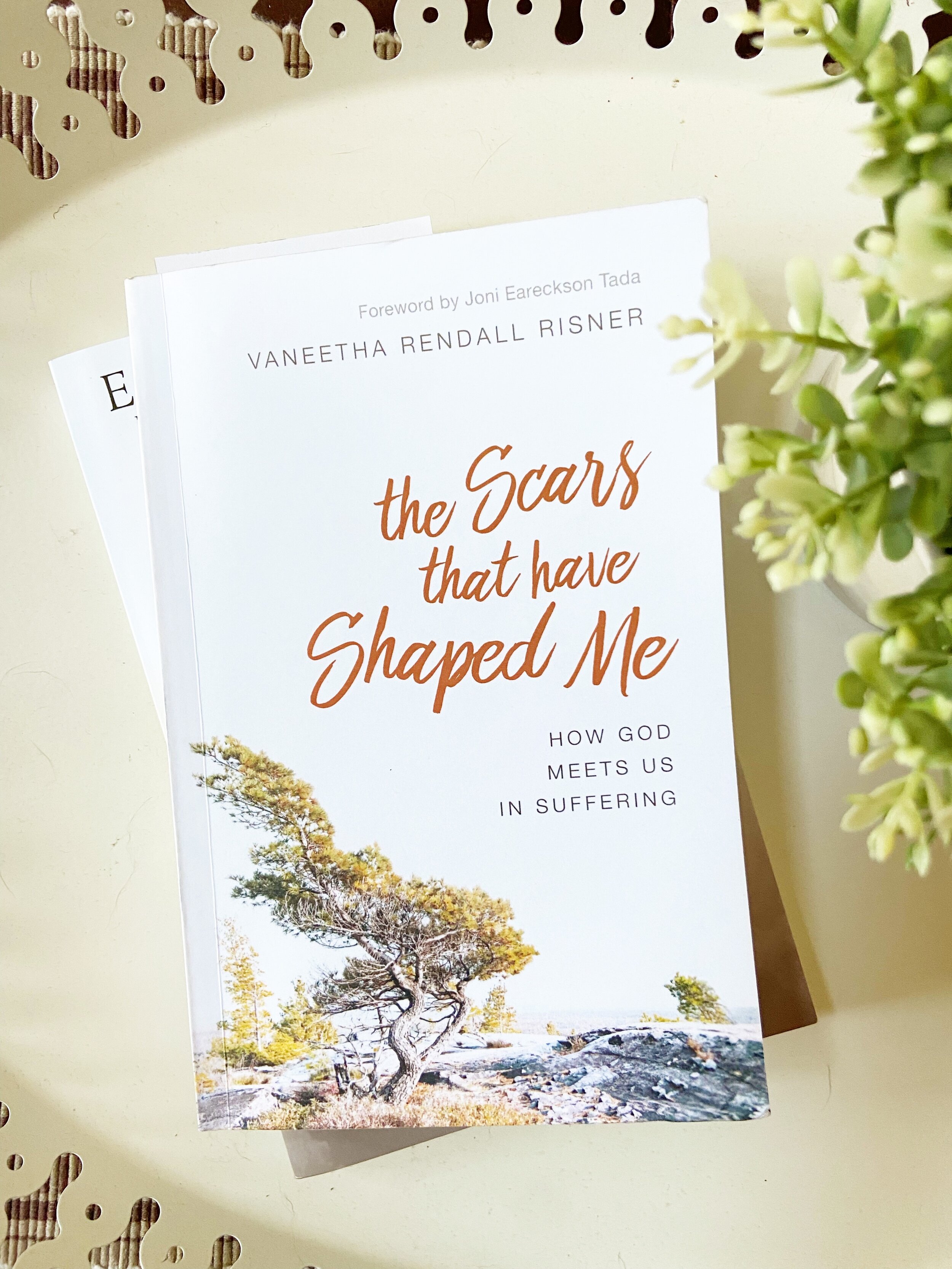Reading the book of Lamentations is like reading a nightmare in which parents eat their children or leave them to starve. No wonder the author is lamenting... sorrowing. His situation is utterly hopeless. "My endurance has perished; so has my hope from the LORD." Yet, he also says, "Therefore I will hope in him." How can the author say that after claiming he had no hope?
Read MoreIn The Scars That Have Shaped Me, Vaneetha Rendall Risner shares her story of life-long illness (Polio & Post-Polio Syndrome) and trials (death of a child and loss of her marriage) with simple writing and honesty.
A quick read packed with great theology. Vaneetha vulnerably reminds her reader of the unchanging character of God, even in the midst of illness and loss.
Read MoreI struggle with asking why. It feels like a form of complaining or faithlessness. Are my whys a lack of trust in God who I know to be Sovereign over all, always good, never changing, loving, compassionate, and faithful? My friend’s death taught me I had more to learn about my God.
Read MoreIn Biblical terms, making space to grieve is called “lament.” Lament is part of the process that brings us to hope. Like a splinter in your finger, it’s painful to begin with but it’s best to endure the “yuckiness” of tweezing it out in order to heal.
Put very simply, to lament is to name your pain or suffering and give yourself permission to feel all the feelings you have regarding it. It takes honesty. And it needs to be expressed in some way outside your head.
Read More


